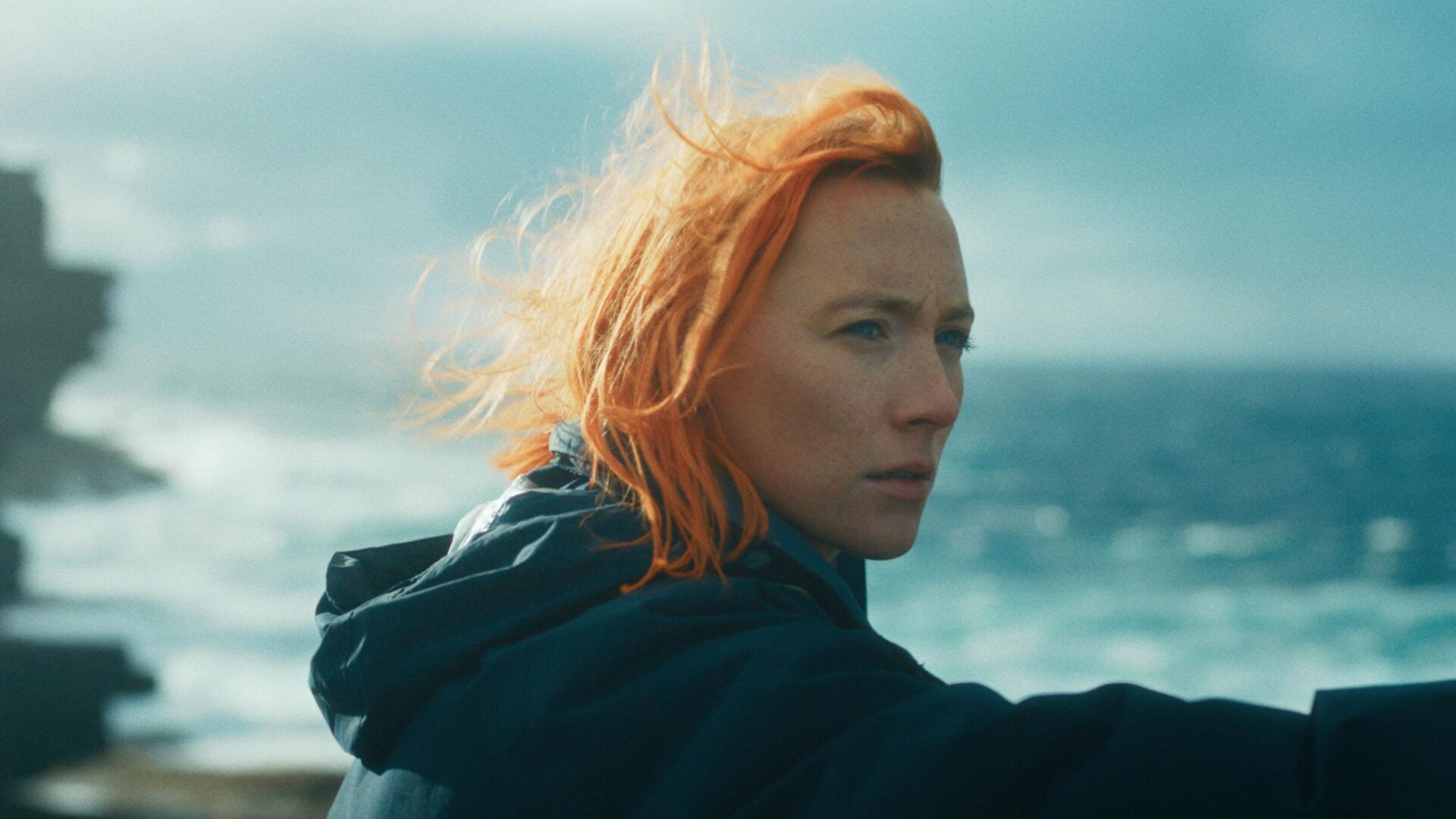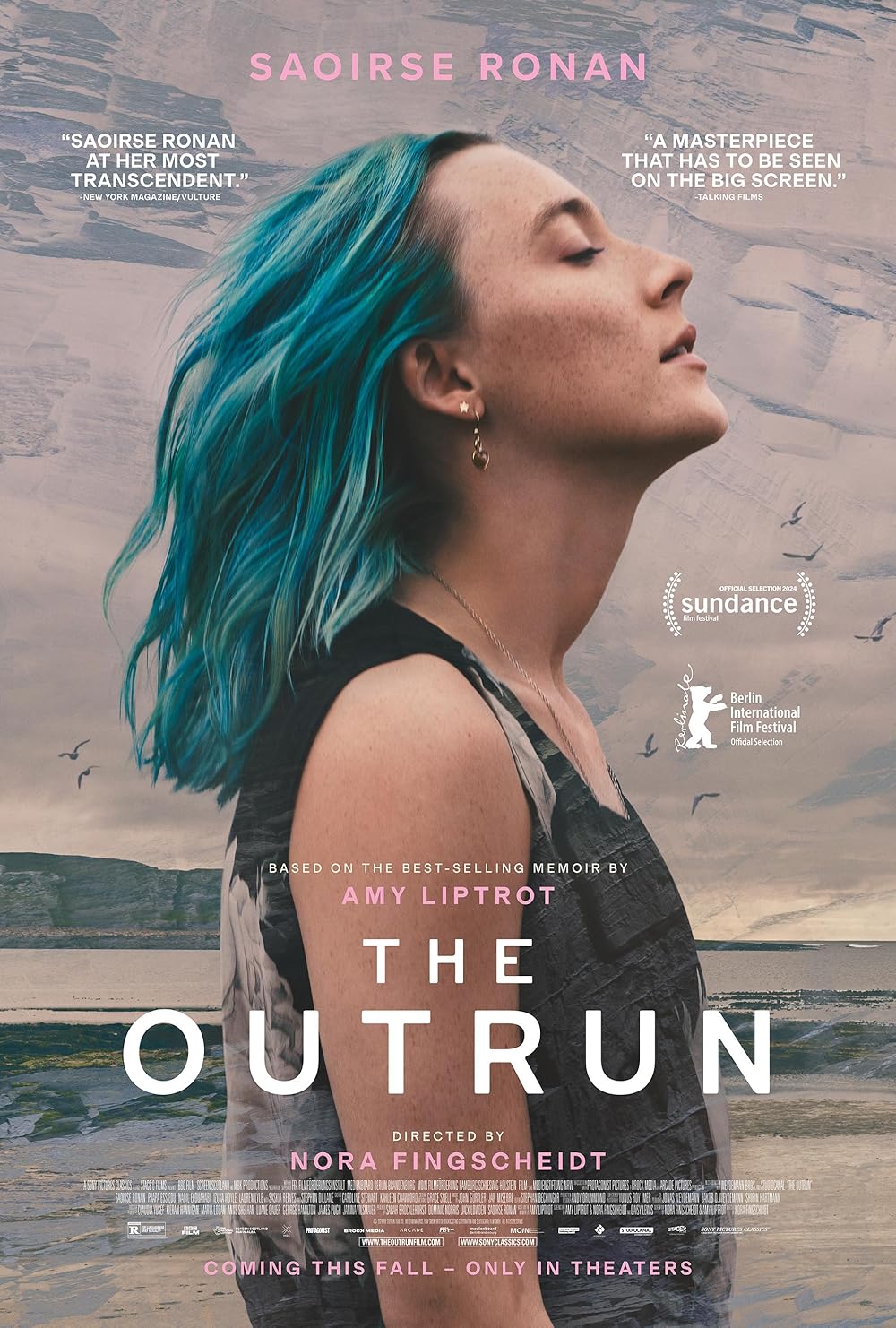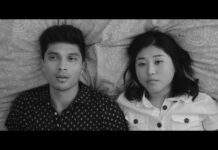
Nora Fingscheidt’s adaptation of Amy Liptrot’s memoir, The Outrun, takes viewers on a deeply emotional journey of self-discovery, healing, and reconciliation with the past. Anchored by a commanding performance from Saoirse Ronan, the film captures the raw beauty of the Orkney Islands and deftly handles sensitive themes of addiction and recovery. Here’s a closer look at what makes this film a standout.
Table of Contents
Saoirse Ronan Shines in a Career-Defining Role
Saoirse Ronan once again proves why she is one of the most gifted actors of her generation. As Rona, a young woman returning to the remote Orkney Islands after a stint in rehab, Ronan delivers a nuanced performance that radiates authenticity. She masterfully conveys Rona’s inner turmoil—her guilt, shame, and longing for a sense of belonging—without resorting to melodrama.
Ronan’s ability to oscillate between vulnerability and quiet strength is mesmerizing. In scenes where Rona confronts her fractured relationship with her family or grapples with her addiction, Ronan’s performance is devastatingly real. Her portrayal humanizes the struggles of addiction, making Rona a relatable and deeply sympathetic character. It’s a performance that lingers long after the credits roll.

A Thoughtful Adaptation of Difficult Subject Matter
Adapting a memoir as introspective and emotionally charged as Amy Liptrot’s The Outrun is no small feat, yet Fingscheidt handles the material with care and sensitivity. The film delves into the complex realities of addiction and recovery without feeling heavy-handed or exploitative. Instead, it presents Rona’s journey with honesty, showing both the pain of her past and the fragile hope of her present.
The screenplay, co-written by Fingscheidt, strikes a balance between introspection and narrative momentum. It uses flashbacks to explore Rona’s troubled life in London, juxtaposing the chaos of her addiction with the serene, if isolating, beauty of Orkney. This contrast underscores the transformative power of returning to one’s roots and facing one’s demons head-on.
Cinematography: The Orkney Islands as a Character
One of the film’s most striking achievements is its cinematography, which brings the Orkney Islands to vivid life. Cinematographer Yunus Roy Imer captures the rugged, untamed beauty of the landscape, making it feel like a character in its own right. Sweeping shots of the cliffs, rolling waves, and open skies convey both the isolation and the solace that Rona finds in her homeland.
The visuals often mirror Rona’s emotional state, with stormy seas reflecting her inner turmoil and moments of calm serenity symbolizing her gradual healing. The cinematography not only immerses viewers in the natural world of Orkney but also deepens the film’s thematic resonance.

Themes of Redemption and Reconnection
At its core, The Outrun is a story about redemption and reconnection—with oneself, with family, and with the natural world. The film explores how our environments shape us and how returning to our roots can be both painful and cathartic. Rona’s relationship with her estranged family, particularly her mother, is portrayed with raw honesty, adding emotional weight to the narrative.
The film also highlights the therapeutic power of nature. As Rona immerses herself in the rhythms of the island—tending to sheep, walking along the cliffs, and observing the wildlife—she begins to rebuild her sense of self. This theme is woven seamlessly into the narrative, emphasizing that healing is a process that requires patience and courage.
Nora Fingscheidt’s Subtle and Assured Direction
Nora Fingscheidt, known for her previous work on System Crasher, proves to be an excellent choice for this adaptation. Her direction is subtle yet assured, allowing the story to unfold organically. She avoids sensationalizing Rona’s struggles, instead focusing on the quiet, everyday moments that define her recovery.
Fingscheidt’s use of silence and ambient sound enhances the film’s introspective tone. Scenes where Rona simply observes the world around her are imbued with a sense of quiet power, drawing viewers into her journey of self-discovery.

A Minor Misstep: Uneven Pacing and Disjointed Flashbacks
While The Outrun excels in many areas, it stumbles slightly when it comes to pacing and the integration of flashbacks. The nonlinear structure, though effective in providing context for Rona’s struggles, can occasionally feel jarring. Flashbacks to her chaotic life in London, while necessary for understanding her journey, sometimes interrupt the flow of the narrative, pulling viewers out of the present-day story.
The film’s pacing also feels uneven, particularly in the middle act. After a gripping opening and a contemplative setup, the story occasionally lingers too long on certain moments, slowing its momentum. While these slower scenes are undoubtedly beautiful and rich in atmosphere, they can leave the audience longing for a clearer sense of progression.
This minor fault does not diminish the film’s emotional impact but serves as a reminder of the challenge in adapting such an introspective and fragmented memoir. A tighter balance between the flashbacks and present-day sequences might have enhanced the film’s coherence and maintained a stronger narrative drive. Nonetheless, the overall experience remains compelling, thanks to the strength of the performances and the stunning visuals.
Conclusion: A Poignant and Visually Stunning Film
The Outrun is a poignant, visually stunning film that tackles difficult subject matter with grace and sensitivity. Saoirse Ronan’s standout performance anchors the film, while the breathtaking cinematography and thoughtful direction elevate it to something truly special. It’s a film that lingers in the mind, offering a powerful meditation on addiction, redemption, and the healing power of nature.
For fans of introspective dramas and character-driven stories, The Outrun is a must-watch—a cinematic experience that is as moving as it is visually captivating.
About The Outrun
Synopsis: After living life on the edge in London, Rona attempts to come to terms with her troubled past. Hoping to heal, she returns to the wild beauty of Scotland’s Orkney Islands where she grew up.
Director: Nora Fingscheidt
Writers: Amy Liptrot, Nora Fingscheidt, Daisy Lewis
Cast: Saoirse Ronan, Paapa Essiedu, Saskia Reeves, Stephen Dillane, Nabil Elouahabi, Izuka Hoyle
Rated: R
Runtime: 1h 58m
Releases: October 4, 2024

he/him • aapi • intj • geek • photographer • journalist • podcaster • martial artist • foodie • dj • cinephile • gamer • traveler




























